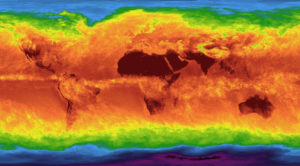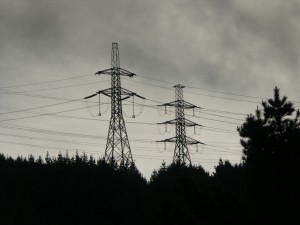6 item(s) were returned.
Industry leaders acknowledge that meeting decarbonization goals will require the use of every tool at their disposal. This will require government to work closely with the private sector to develop effective solutions. These public-private partnerships, such as the Energy Future Collaboration Partnership between the city of Denver and Xcel Energy, will be essential if ambitious objectives at the state and local levels are to be achieved. On January 13, OurEnergyPolicy hosted a webinar led by Susanne DesRoches (NYC Office of Resiliency and NYC Office of Sustainability) that examined the importance and potential of public-private partnerships to advance and support the… [more]
View InsightChair, Energy & Commerce Subcommittee on Environment & Climate Change, U.S. House of Representatives
Co-Chair, Sustainable Energy & Environment Coalition
Americans are living, and dying, in the path of unprecedented flooding, raging wildfires, and battering storms driven by Earth’s changing climate. Regardless of the origins of our predicament, we have inherited these conditions. It falls to us to set aside past disagreements and rise together to meet this challenge through federal climate action. The principles outlined here, and in greater detail at Tonko.house.gov/climate, are meant to provide a framework that moves the lines of our agreement forward and help us build a comprehensive national climate action plan together. This is an appeal to everyone who takes solving the climate crisis… [more]
View InsightChair, Energy & Commerce Subcommittee on Environment & Climate Change, U.S. House of Representatives
Co-Chair, Sustainable Energy & Environment Coalition
On a hot day in August 2003, a stretched transmission line tripped after dipping into an overgrown tree in Ohio. Soon after, multiple transmission lines nearby also tripped beginning what would become the second-largest blackout at that time in history, impacting eight Northeastern states and Southern Canada. Since this massive blackout and concerns about grid reliability, power generation in the United States has changed dramatically both in form and quantity. In 2005, Congress recognized the need for mandatory grid reliability standards and expanded the Federal Energy Regulatory Commission’s (FERC) authority to regulate the bulk power system. However, despite FERC’s efforts… [more]
View InsightEconomist
Environmental Defense Fund
Throughout most of the country, residential electricity customers pay the same price for electricity regardless of when it is consumed. Such flat rates mask the fact that true system costs vary over time according to electricity demand. Prices that better reflect the time-varying costs of producing and delivering electricity can lead to a number of economic and environmental gains, such as reduced wholesale prices, increased investment in clean distributed energy resources, and lower overall carbon emissions. Time-variant electricity pricing gives customers greater control over their electricity bills, since they can use electricity when it is cheaper and cut back when… [more]
View InsightCalifornia, New York, and Washington will require that large insurance companies, including some of the best auto insurance companies, operating within those states disclose how they respond, and plan to respond, to the risks posed by climate change. [New York Times] The U.S. in 2011 experienced a record number of natural disasters, and the costs of recovery – much of which will be borne by the insurance industry – are expected to exceed $50 billion. [New York Times] “We want to make sure that the financial soundness and stability of the insurance companies are not jeopardized by inadequate preparation for… [more]
View InsightDirector, Stakeholder Relations/External Affairs
Brookhaven National Laboratory
Hydrofracking for natural gas in shale formations has generated a heated national debate, complicating and in some cases preventing efforts to extract the resource. Critics of hydrofracking cite the process’ uncertain environmental and geologic risks. Meanwhile, natural gas developers and policymakers have been working to identify and implement technical standards and best practices to overcome or reduce these risks to negligible levels. In my home state of New York, Governor Andrew Cuomo has said of hydrofracking: “Let’s get the facts. Let the science and the facts make the determination, not emotion and not politics.” I agree. State of the art… [more]
View Insight


